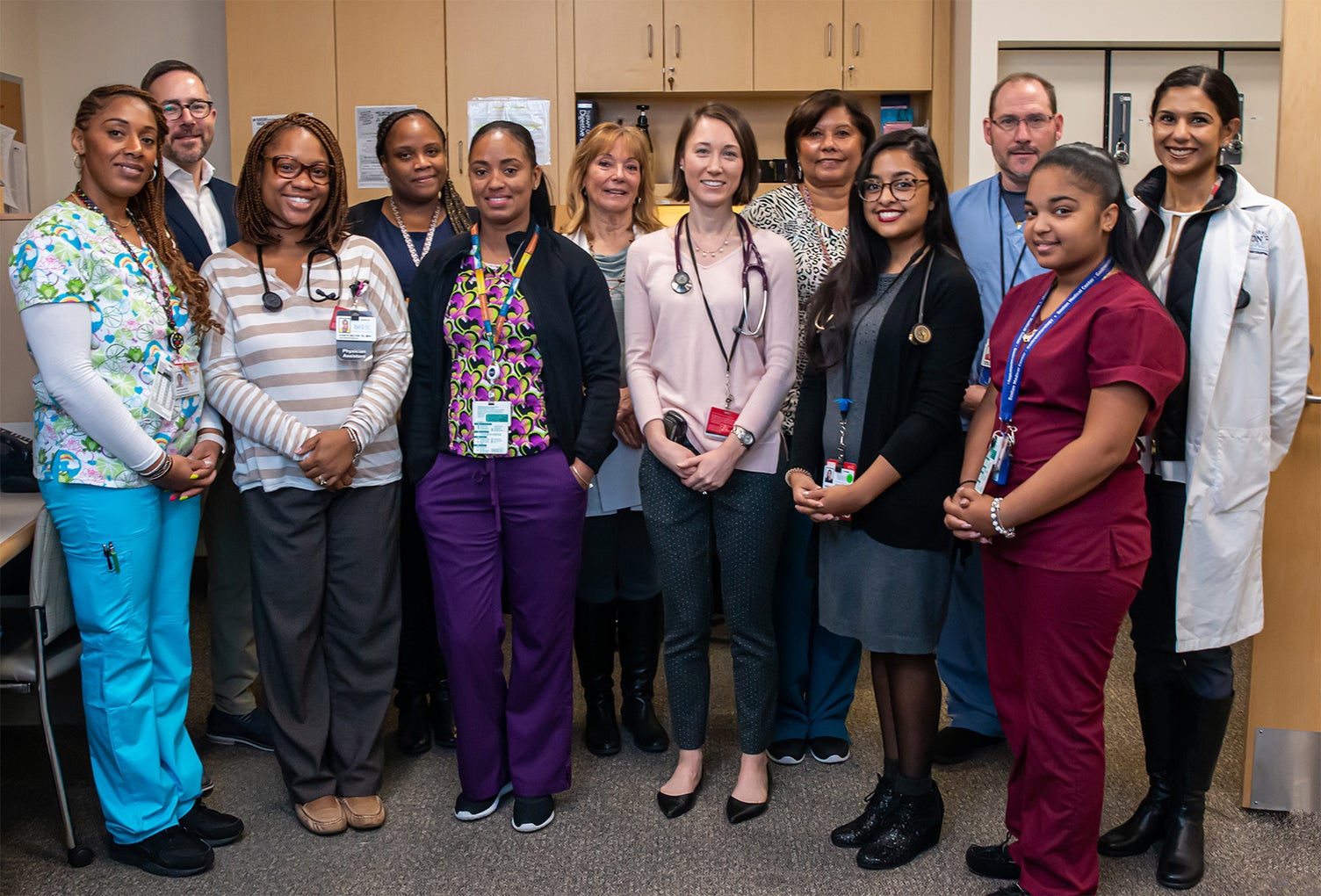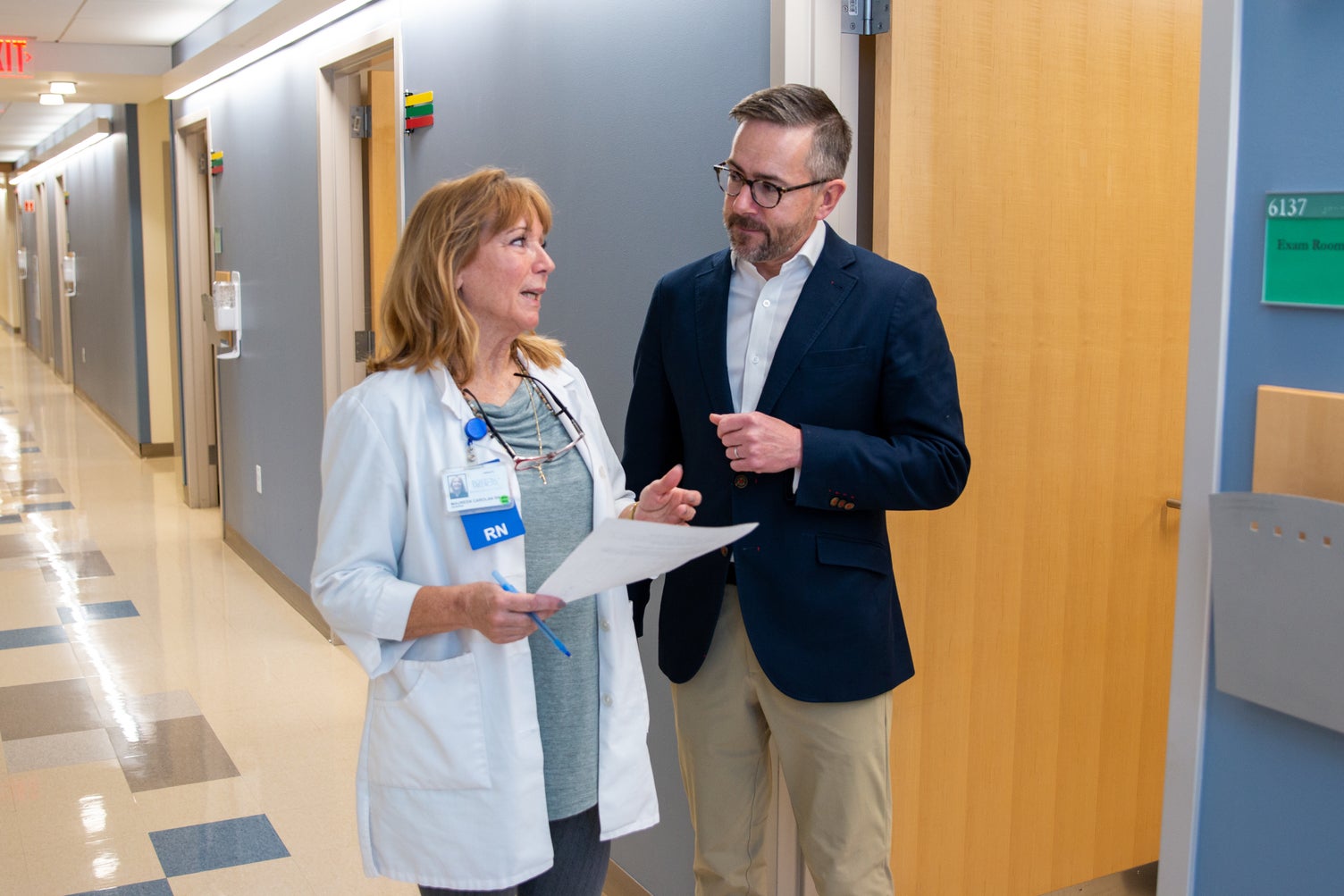Crohn’s disease and ulcerative colitis are two conditions where chronic inflammation develops in the large (colon) or small intestine. This can lead to diarrhea, blood in stool, abdominal pain, fatigue, weight loss, and anemia. For detailed information on these conditions, see the Crohn’s & Colitis Foundation website.
What’s Different about the Crohn’s & Colitis Program at BMC?
 The program to care for patients with Crohn’s disease or ulcerative colitis at BMC has a number of unique features;
The program to care for patients with Crohn’s disease or ulcerative colitis at BMC has a number of unique features;
- Holistic care: We help you navigate every aspect of dealing with IBD, including education and advocacy, psychological support, dealing with insurance requirements, access to clinical trials, and pharmacy and nutrition counseling.
- Team-based: Once enrolled in our program, you can see any doctor or physician assistant (PA) according to what suits your schedule. We have both in-person and video consultations from Monday-Friday most weeks. Our clinical pharmacist and IBD nurse are also available for video consultations and education sessions.
- National experts: Our team members are recognized nationally for their expertise in IBD, giving lectures, publishing clinical guidelines and writing research papers. See their profiles here:
How is IBD Diagnosed?
Crohn’s disease and ulcerative colitis are diagnosed by colonoscopy and biopsy, with supporting information from imaging (CT, MRI) and blood or stool tests. All the tests necessary to diagnose IBD are available at Boston Medical Center.
Our Crohn’s & Colitis Program endoscopy center uses high-definition and imaging techniques scopes to look for both inflammation and complications of IBD, such as scar tissue (strictures) and early cancer (dysplasia).
How is IBD Treated?
 Crohn’s disease and ulcerative colitis are chronic conditions, like asthma or diabetes, so long-term medical treatment is needed to control the inflammation (remission). These medicines can be in the form of pills, suppositories, injections or infusions. See more about treatment options for:
Crohn’s disease and ulcerative colitis are chronic conditions, like asthma or diabetes, so long-term medical treatment is needed to control the inflammation (remission). These medicines can be in the form of pills, suppositories, injections or infusions. See more about treatment options for:
Our Crohn’s & Colitis Program team of doctors, physician assistants, pharmacists, and nurses can provide detailed explanations of treatment options, education, medication approvals and injection training on site. We can work with your insurance on approvals, set up home infusions, and liaise with your other doctors to make your treatment plan seamless.
Sometimes, patients with IBD need surgery to treat complications of these conditions. Our Colorectal Surgery team has the experience and expertise to discuss all these options with you, and plan and undertake all necessary surgery on-site.
